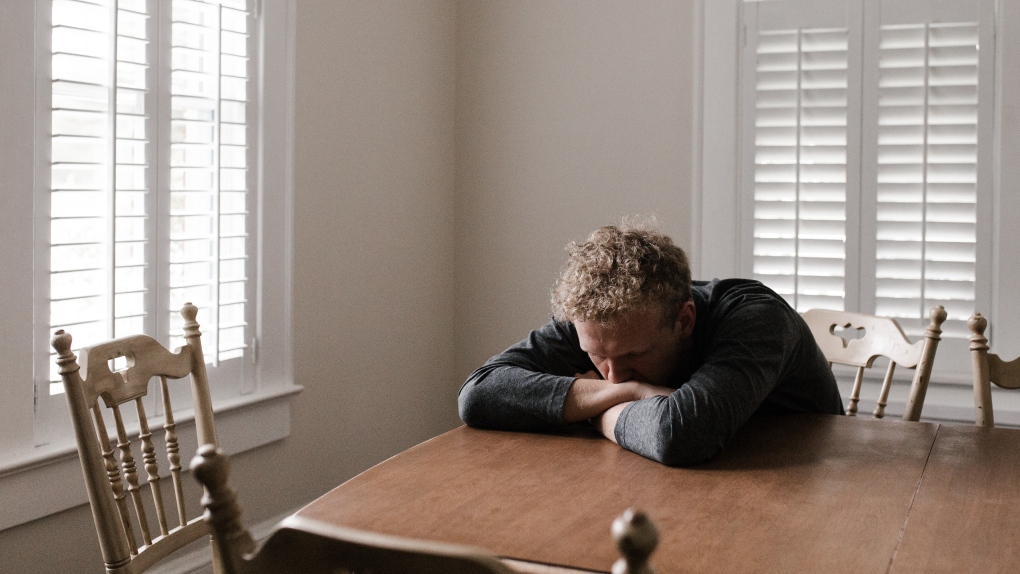
New non-police mental health response pilot to focus on Centretown

The city of Ottawa's new mental health and substance use emergency dispatch project will begin in Centretown, staff say.
In July, City council approved a plan to create a mental health emergency dispatch line and mobile crisis team that would be available 24/7, similar to 9-1-1.
- The information you need to know, sent directly to you: Download the CTV News App
- Sign up now for our nightly CTV News Ottawa newsletter
The goal is to establish a new number that residents can call other than the police. A non 9-1-1 phone number would triage calls and dispatch response. A 24/7 mobile team would respond and be led by civilian professionals with expertise in mental health and substance use crises. The city says non-uniform responders would offer trauma-informed and culturally appropriate crisis response services.
In a memo Tuesday, Clara Freire, general manager of community and social services, said the group tasked with selecting the first neighbourhood for the project was unanimous in deciding on Centretown.
The neighbourhood was chosen because of its high community need, central location, and urban accessibility.
"Data on mental health and substance use-related police involvement and emergency department visits underscored a significant need in the chosen geography," the memo says.
"Geography allows for the crisis response team to connect with clients on foot or using a van for more discrete intervention."
A request for proposal will be launched next week to select a not-for-profit social service organization to lead the program.
"Applicants will be encouraged to collaborate with other not-for-profit organizations to execute various aspects of the prototype, and they will be encouraged to incorporate details about these partnerships within their application," Freire wrote.
The deadline to apply will be Oct. 27. Council will be informed of staff decisions in mid-November.
Somerset ward Coun. Ariel Troster said she is "delighted" that the program will begin in Centretown.
"When this project is launched, Centretown residents and visitors will finally have a place to call when we witness a neighbour in distress," she said on X, the platform formerly known as Twitter.
"This evidence-based and radically compassionate approach will connect people with community health and social service resources while also de-escalating conflict and freeing up police to deal with more serious criminal matters."
The program is expected to launch in the fall of 2024.
CTVNews.ca Top Stories

AS IT HAPPENED Wildfire reaches Jasper Wednesday night, causes 'significant loss'
One of two wildfires threatening Jasper National Park reached the townsite Wednesday night and caused 'significant loss.'
Alberta calls in army to assist with wildfire situation
Alberta has called in the Canadian Armed Forces to help assist with the worsening wildfire situation in the province.
Biden explains why he ended re-election bid in Oval Office address
U.S. President Joe Biden on Wednesday delivered a solemn call to voters to defend the country's democracy as he laid out in an Oval Office address his decision to drop his bid for reelection and throw his support behind Vice President Kamala Harris.
Barrie-Innisfil MPP 'blacked-out' and crashed car into window of child care centre
Staff at a Barrie child care centre say they are frustrated by what they call a local MPP's inadequate response after a car crashed through a window in one of the toddler rooms.
Norad intercepts Russian and Chinese bombers operating together near Alaska in apparent first
The North American Aerospace Defence Command (Norad) intercepted two Russian and two Chinese bombers flying near Alaska Wednesday in what appears to be the first time the two countries have been intercepted while operating together.
2 Canadians being 'sent home immediately,' removed from Olympic team after drone incident
An analyst and an assistant coach with Canada Soccer are being removed from the Canadian Olympic Team and 'sent home immediately,' according to the Canadian Olympic Committee.
An unwelcome attendee has joined the Paris Olympic Games: COVID-19
After a handful of Australian water polo players tested positive for COVID-19 this week, questions have emerged around how the spread of the disease will be mitigated at the Summer Olympic Games in Paris.
Vacations, meals, booze: Contractor used $100K of charity's money for personal expenses, B.C. court finds
A B.C. man who was hired to help a non-profit build a food hub but instead spent the money on personal expenses – including travel, restaurants, booze and cannabis – has been ordered to pay more than $120,000 in damages.
Male, female killed, 2 others injured in 'gun battle' outside Toronto plaza: police
Two people are dead and two others suffered serious injuries following a shooting that police have described as a 'gun battle' outside a plaza in Scarborough, Ont. early Wednesday morning.




























